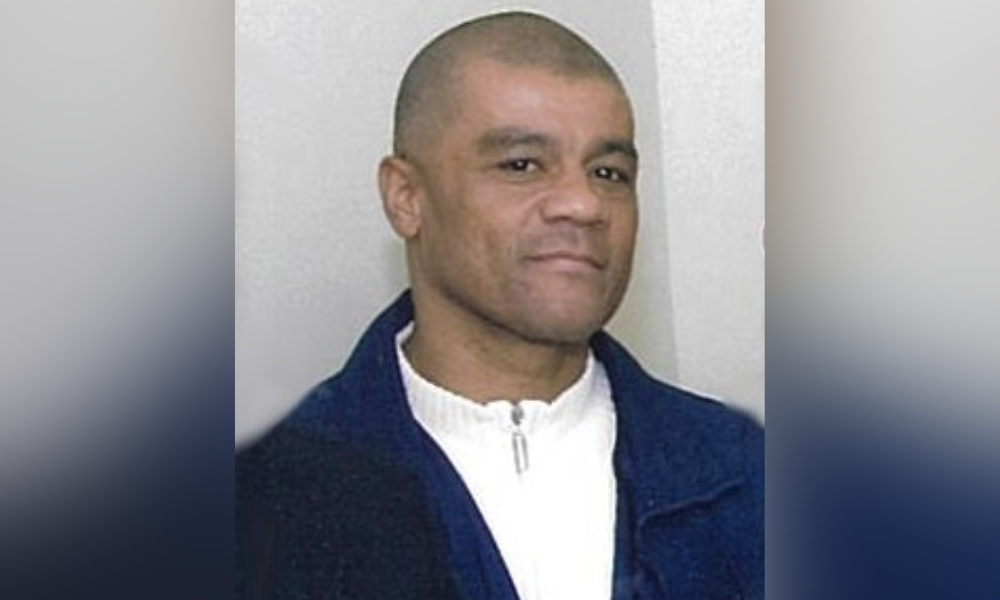Employer called location of Darrell Richards' death to explain the best way to process calender rolls an hour after incident

New Brunswick employer American Iron and Metal (AIM) failed to inform their workers on time about the dangers of the calender rolls which ultimately killed a worker in 2022, the inquest heard.
The AIM facility in Maine called the Saint John facility about an hour after Darell Richards’ death to explain how dangerous the calender rolls were and how best to process them, Michel Cyr, manager of investigations for WorkSafeNB, said during the proceedings, according to reports.
Richards died on June 30, 2022 from injuries sustained while cutting into a calender roll. A calender roll is a large steel cylinder used to press paper and plastic.
On the day of the incident, Richards got on top of the calender roll and attempted to use a circular saw to remove the material – which weighed 3,750 pounds and was under 1,500 tons of force, according to the Saltwire report.
The roll ruptured and cut Richards's femoral artery on the leg, which led to his death in hospital the next day.
‘No way to share information between AIM locations’
The calender rolls came from the Maine facility, said Cyr, noting “there is no official way to share information between AIM locations,” according to a CBC report.
He explained that AIM in Maine purchased the rolls from scrap dealers known as United Buyers. Meanwhile, United Buyers got them from ND Paper. It was NP that warned of the dangers in an email.
"Before I can release the cloth rolls, can you please email back the process that you will use to safely dismantle them? As we have discussed, these are highly compressed and can dangerously release like a compressed spring letting loose if not dismantled properly," Dave Falk, director of fixed asset management with ND, wrote on April 13, 2022, according to the report.
"You stated that you are familiar with these rolls and know how to safely dismantle and have experience doing so. Please confirm your process with me so we can finalize approval to release."
The reason that AIM in Maine shipped the calender rolls is that, at the facility, they use a shear to release the energy from the rolls, or they hire a contractor who uses torches to release the energy, said Cyr.
And though the workers at AIM in Maine had more than 20 years of experience decommissioning calender rolls, the regional manager didn't know the hazards and shipped them to Saint John because he didn't have the manpower to deal with them, he said, according to CBC.
Workers at the Saint John facility had no experience dismantling calender rolls and were unaware of the danger associated with them, the inquest heard.
AIM places on-site safety supervisor
AIM also did not have a specific program to identify hazardous materials at its Port Saint John facility back in 2022, Stephanie Spinney, a health and safety advisor at AIM, testified during the inquest, according to another report.
After Richards’ death, she developed a “hazard identification program” for all incoming products, but said support was lacking “above me” to have it implemented, Spinney said, reported CTV News.
“It was too robust,” said Spinney. “They didn’t want to do it.”
Also, Ryan Cyr, the company’s director of operations, did not want to have everything coming onto the yard to be checked, claimed Spinney.
If that would be done, “we wouldn’t have a job,” Spinney quoted Cyr as saying.
When asked if she believed the company was familiar with potentially hazardous materials coming onto its yard, Spinney said “in general, yes.”
The biggest change in AIM’s safety culture since Richards’ death was the addition of an on-site safety advisor, Spinney said.
The advisor was part of a program where workers were given a card with information tailored to their particular duties each day, identifying and mitigating hazards, she said, according to the report.
Jury recommendations
Overall, the jury heard from 16 witnesses, and made four recommendations focused on safety, communication, purchasing and inspection to try to prevent future deaths or injuries.
"We feel AIM New Brunswick has made a reasonable attempt to increase and improve safety awareness," the jury foreperson read aloud for the Saint John courtroom, according to another CBC report. "Continuation of appropriate training, certifications and supervision is a priority and compliant with WorkSafeNB."
The jury noted that AIM headquarters should initiate communication and distribute it to all satellite sites.
"Employee communication is a valuable tool to help prevent workplace accidents,” said the jury foreperson.
When it comes to purchasing scrap metal, AIM should request the appropriate credentials from and conduct a background check on all suppliers. The employer must also request a description of the materials, and an "indication of hazards pertaining to the products," the foreperson said.
AIM should also implement a hazardous inspection program in New Brunswick to aid in the identification process. The employer must also continue to quarantine hazardous materials and label them accordingly until appropriate documentation is obtained with an approved safe-work procedure, the jury said.





